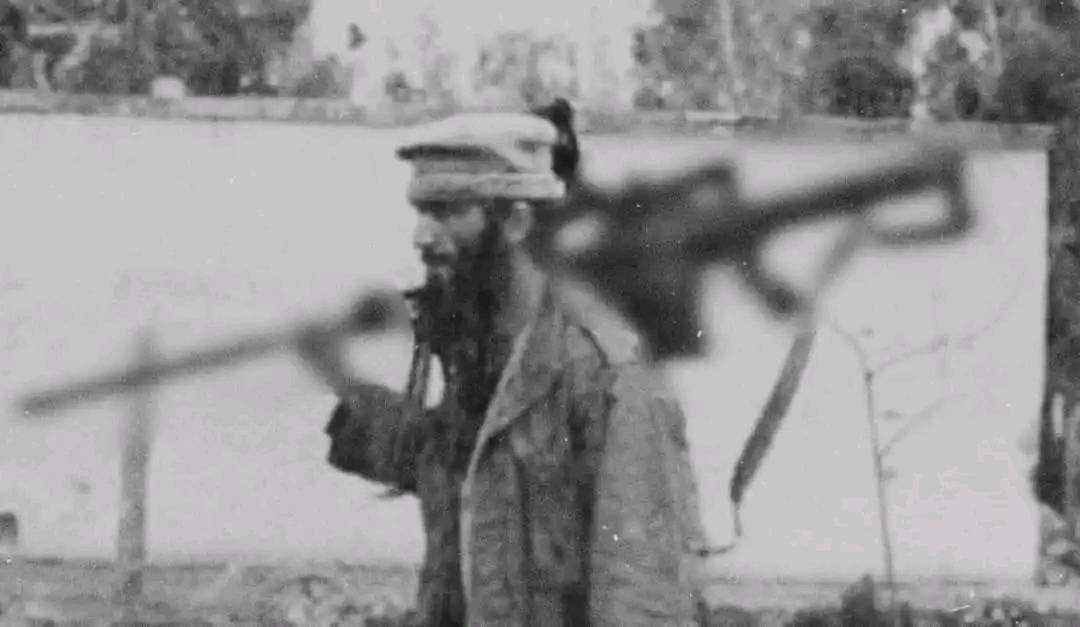Islamic State Biography: Yassin al-Kurdi
A member of Islamic State's 'Hidden Important Figures of Iraq' - their pantheon of Iraqi heroes
Official Islamic State portrait of Yassin al-Kurdi
While Facebook destroys every functionality which once made it a genuinely useful and appealing app, including the already meager content moderation, pro-Islamic State (IS) accounts proliferate propaganda without restriction. I have personally found about 100 accounts, of which ~40 are regularly active. Apparently AI slop takes priority over suppressing actual terrorist accounts. One of these is dedicated to sharing IS’s pantheon of heroes–jihadis (both inside and out of IS), of whom it approves and considers ‘true.’ Currently, this account is going through the ‘Hidden Important Figures of Iraq,’ the Iraqi jihadis in the IS movement and whom IS retroactively claims for itself. Famous names show up such as Abu Bakr al-Baghdadi and Abu Umar al-Baghdadi, but the vast majority really are ‘hidden.’ One such figure caught my eye because I have not seen him in any jihadi martyrology, let alone IS’s.
His name was Yassin al-Kurdi. He belonged to the generation of jihadis that first fought in Afghanistan against the Soviets during the 1980s. This generation is revered by all jihadis and Islamists of either sect today, so it is no surprise that IS approves of him. What is striking is that Kurdi was truly global, having fought not only in Afghanistan but in the Caucasus, the Balkans, and in his native Iraq. Naturally, this appeals to IS’s internationalist perspective, as befitting a globe-spanning ‘caliphate.’ Interestingly, Kurdi fought for Shia Azerbaijan against Christian Armenia. This goes against IS’s genocidal anti-Shia sectarianism which forms the core of its worldview. This would not be the first time that IS overlooks ideologically or politically inconvenient aspects of its heroes. The movement considers Taliban founder Mullah Omar as one of its own despite Omar considering Salafism heretical and being strictly Afghan focused–there was little difference between his regime and the current Taliban regime, of which his son Yaqoub is a prominent leader, and with which IS is currently at war. More shockingly, IS continues to revere IS cofounder Manaf al-Rawi, who infamously starred in the Nick Berg beheading video and who betrayed IS emirs Abu Umar al-Baghdadi and Abu Hamza al-Muhajir. Yet more evidence that IS must be considered a political movement, rather than a strictly ideological boogeyman. Kurdi’s death in 1994 prevented him from having lived long enough to see and possibly denounce the movement which now claims him.
As his name suggests, Yassin al-Kurdi was Kurdish. Although the secular communist PKK is the largest Kurdish militant group, there has always been a current of radical Islamism in Kurdish politics. Indeed, despite its (well-earned) Sunni Arab-centric reputation, IS has had a Kurdish component from the very beginning–one cofounder, Abu Muhammad al-Lubnani (real name Mustafa Ramadan Darwish), was of Kurdish ethnicity and natively spoke Kurdish. The ‘Lubnani’ epithet is slightly misleading as he grew up Lebanon and had assimilated Arab culture in addition to his Kurdish background. Now, enough history, let us get to Kurdi’s biography, as reported by IS and translated by me.
Commander Yassin al-Kurdi
Yassin al-Kurdi was born in the city of Kerkuk and grew up there. He sought education from Shaykh Mullah Hamdi al-Salafi. He then joined the formations of the mujahidin in the city of Halabja, then went into the mountain ranges of Kurdistan. Next, he made hijra [immigrated] to Khorasan [Afghanistan] at the start of the Soviet War [1979-80] and fought on the fronts of Kabul, Kandahar, and Khost. He was appointed emir [leader] of one of the Khost camps, where he worked as a trainer and jurist. Later, he made hijra to Armenia and Azerbaijan to participate in the military campaigns there. He also fought in the battles of Kosovo and led one of the fronts of the Bosnian war in Sarajevo. Afterwards, he returned to Khorasan following the factional fighting [among the Mujahidin Parties] to prevent the muhajir [migrant] camps from intervening in the conflict. He later headed back to Iraq after the Ba’ath tyrant’s [Anfal] campaign against Kurdish Muslims intensified. In the year 1415 AH [corresponding to 1994], Yassin al-Kurdi was treacherously killed from the stakes of the Ba’ath on the charges of hijra.




Hello!Recently,I noticed that you have introduced Yassin al-Kurd on your account.However,after searching the internet,I couldn't find any information about this person.Do you have more materials about him?I would like to learn more about him.